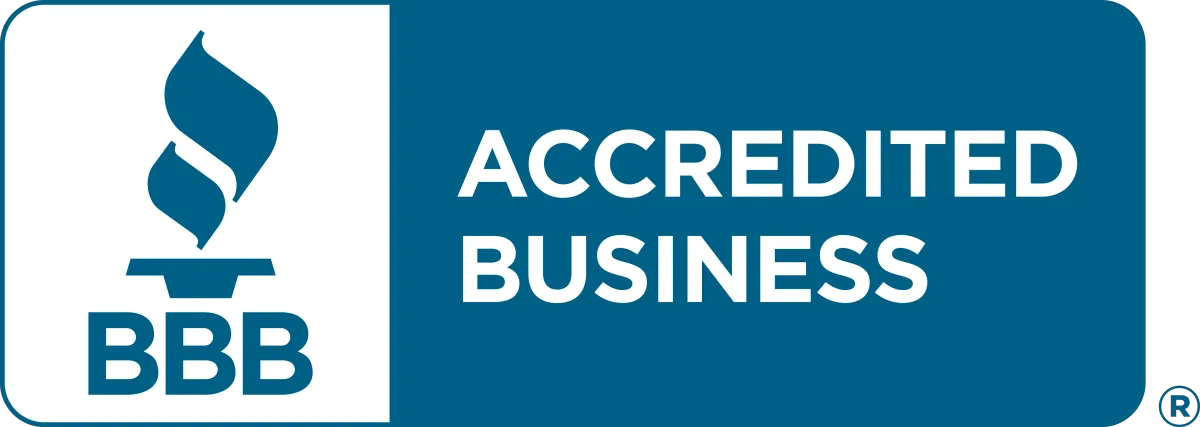Confused About Medicare?
Get 1-on-1 Help
At No Cost to You
Speak directly with a licensed Medicare advisor who works for you — not the insurance companies.
Call us now at (866) 988-0777 or schedule your free consultation below.
Book Your Free Appointment
Get clear, unbiased answers about your Medicare options — from a licensed advisor who works for YOU, not the insurance companies.
Personalized Guidance
Every Medicare situation is different. We take the time to understand your unique needs — including your doctors, prescriptions, and budget — so we can help you compare plans that actually fit your life.
No Cost, No Pressure
Our consultations are always 100% free. You’ll never be charged for our advice. We’re paid by the insurance companies if you enroll in a plan — and you’re never under any obligation to choose one.
Local & Trusted Advisor
You won’t be speaking to a call center. You’ll connect directly with Roger Doyne or one of his licensed associates — real people who live and work in your community and genuinely care about helping you.
WHY WE ARE DIFFERENT
Most People Don’t Realize:
“I don’t charge you a dime. My services are paid for by the insurance companies — not you.”
– Roger D. Doyne, Sr., Licensed Medicare Advisor
That means you get expert, personalized help at no cost, with no pressure and no gimmicks.

About Your Host
Roger D. Doyne Sr.
Licensed Medicare Advisor | 15+ Years Experience
Roger has guided hundreds of individuals through plan selection based on their needs, lifestyle, and budget. He provides one-on-one support with a local, personal touch — not a call center script.
Licensed Insurance Agent (15+ years)
National Producer Number (NPN): 1733006
Licensed in AR, TN, AL, GA
Trained in CMS-compliant Medicare plan selection
ABOUT US
Empowering Seniors with Confidence and Clarity
We are your trusted source for Medicare education and personalized guidance. We’re here to simplify the complex world of Medicare so you can make confident, informed decisions about your health coverage.
Founded by Roger D. Doyne Sr., President and CEO of Roger Doyne & Associates Insurance Agency, Inc., our independent, full-service agency is based in Little Rock, Arkansas and licensed in Arkansas, Tennessee, Alabama, and Georgia.
Represented Carriers






Why Clients Choose Us

Education First
Our top priority is helping you understand Medicare clearly. No jargon, no overwhelm — just straight answers.

Independent & Unbiased
We work with multiple top-rated insurance carriers, so we can compare plans and offer honest recommendations tailored to your situation.

Local & Personal Support
You’ll work directly with Roger or his trusted associates — not an outsourced call center.

No Cost to You
There’s never a fee for our consultations. We’re paid by the insurance companies if you choose a plan — not by you.
Frequently Asked Question
Who qualifies for Medicare and at what age?
Medicare is a federal health insurance program primarily for:
1. People aged 65 or older - You qualify if you are a U.S. citizen or a legal resident who has lived in the U.S. for at least five years.
2. Younger individuals with disabilities - If you have been receiving Social Security Disability Insurance (SSDI) for at least 24 months, you automatically qualify for Medicare before age 65.
3. People with End-Stage Renal Disease (ESRD) - Those with permanent kidney failure requiring dialysis or a transplant can qualify at any age.
4. People with Amyotrophic Lateral Sclerosis (ALS, or Lou Gehrig's disease) - You qualify for Medicare immediately upon receiving SSDI, without the 24 -month waiting period.
Would you like more details on how to enroll or what Medicare covers? Inquire at [email protected] or book a free 30 consultation below.
What is the enrollment period for Medicare Advantage or a Part D drug plan upon turning 65?
When you turn 65, you have a 7-month Initial Enrollment Period (IEP) to sign up for Medicare Advantage. This period includes:
- 3 months before your 65th birthday month
- The month you turn 65
- 3 months after your birthday month
Key Notes:
- If you enroll before your birthday month, coverage starts on the first day of your birthday month.
- If you enroll during or after your birthday month, coverage may be delayed.
- If you miss your IEP, you may have to wait until the Genreal Enrollment Period (Jan 1 - Mar 31) and pay late penalties.
What is the penalty for not enrolling in a Medicare Advantage plan or drug plan by the required deadline?
If you don’t enroll in a Medicare Advantage (Part C) or Medicare Part D (prescription drug plan) by the required deadlines, you could face penalties:
1. Medicare Part D Late Enrollment Penalty
· If you go 63 consecutive days or more without creditable prescription drug coverage after your Initial Enrollment Period (IEP), you’ll be subject to a late enrollment penalty.
· The penalty is 1% of the national base beneficiary premium ($34.70 in 2024) for each full month you were without coverage.
· This penalty is added to your monthly premium permanently for as long as you have Part D.
2. Medicare Advantage (Part C) Penalty
· There is no direct late enrollment penalty for not enrolling in a Medicare Advantage plan.
· However, if you do not enroll in Medicare Part B when first eligible, you may face a Part B late enrollment penalty (see below), which can affect your ability to get a Medicare Advantage plan later.
3. Medicare Part B Late Enrollment Penalty
· If you don’t enroll in Part B when first eligible and don’t have other creditable coverage, your premium will increase by 10% for each full 12-month period you could have had Part B but didn’t.
· This penalty is permanent and applies for as long as you have Medicare.
If you missed enrollment, you may need to wait until the Medicare General Enrollment Period (January 1 – March 31) to enroll, with coverage starting July 1 of that year. Special Enrollment Periods (SEPs) may be available if you qualify based on certain circumstances (e.g., losing employer coverage).
Is a Medicare part C plan the same as Medicare Advantage plans
Yes, Medicare Part C and Medicare Advantage are the same thing.
Medicare Part C is the official name, but most people refer to it as Medicare Advantage. These plans are offered by private insurance companies and provide the same coverage as Original Medicare (Part A & Part B), often with extra benefits like prescription drug coverage, dental, vision, and hearing care.
What is the difference between the types of Medicare Advantage plans? (expl. HMO, PPO, SNP, etc.)
Medicare Advantage (Part C) plans come in different types, each with unique rules on provider networks, referrals, and costs. Here’s a breakdown of the main types:
1. Health Maintenance Organization (HMO) Plans
- Must use in-network doctors (except for emergencies)
Primary care physician (PCP) required
- Specialist referrals needed
Lower out-of-pocket costs
- Best for: Those who want lower premiums and don’t mind a more restricted network.
2. Preferred Provider Organization (PPO) Plans
- Can see any doctor, but lower costs in-network
No referrals needed for specialists
More flexibility, but higher premiums than HMOs
- Best for: Those who want more provider choice and are willing to pay higher premiums for it.
3. Private Fee-for-Service (PFFS) Plans
- Can see any Medicare-approved provider who accepts the plan’s terms
No need for a primary doctor or referrals
Costs vary—some providers may not accept the plan
- Best for: Those who want flexibility but don’t mind checking provider acceptance first.
4. Special Needs Plans (SNPs)
- Tailored for people with specific conditions (e.g., diabetes, heart disease).
May include extra benefits related to the condition.
Must use a network and have a primary care doctor.
- Best for: People with chronic illnesses, Medicaid eligibility, or in long-term care.
5. Medicare Savings Account (MSA) Plans
- Combines a high-deductible health plan with a medical savings account
Medicare deposits money into the account to help pay healthcare costs
You pay out-of-pocket until the deductible is met
- Best for: Those comfortable managing a savings account for medical expenses.

